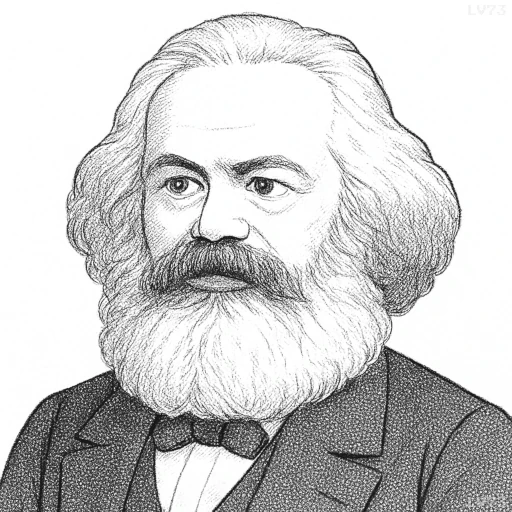“The writer may very well serve a movement of history as its mouthpiece, but he cannot of course create it.”

- May 5, 1818 – March 14, 1883
- Born in the Kingdom of Prussia (Germany)
- Philosopher, economist, political thinker
table of contents
Quote
“The writer may very well serve a movement of history as its mouthpiece, but he cannot of course create it.”
Explanation
In this quote, Marx argues that while writers and intellectuals can play a significant role in expressing and promoting historical movements, they do not have the power to create these movements themselves. Writers, in Marx’s view, are products of their historical context and often serve as a reflection of the social forces and class struggles that shape their time. While they may articulate the ideas and desires of the people, they are not the originators of the movements that drive history. Instead, historical material conditions, such as economic structures, class relations, and modes of production, are the true engines of societal change. The writer, then, is more of a mediator or mouthpiece for the broader social dynamics at play.
Historically, Marx saw the working class (proletariat) as the true revolutionary force capable of transforming society. Intellectuals and writers, even though they may contribute to the ideological framework of a revolution, cannot, on their own, create the material conditions necessary for social change. The historical movements that shape society arise from the economic and social struggles of the masses, particularly the working class, and it is the collective actions of these groups that ultimately drive history forward. Writers may influence public opinion, but it is the class struggle that is the real driving force behind historical development.
In modern times, this quote resonates in discussions about the role of intellectuals, activists, and media figures in social movements. Writers, journalists, and public figures often give voice to social movements and articulate the needs and frustrations of marginalized groups, but the real power for change lies in collective action and mobilization. For example, while writers and activists have played key roles in movements like civil rights, environmental justice, or labor rights, it is the grassroots mobilizations of communities and workers that lead to tangible social change. Marx’s point reminds us that while intellectuals can contribute to political discourse, the power to create lasting change resides with those engaged in the material struggle for a more just society.
Would you like to share your impressions or related stories about this quote in the comments section?
